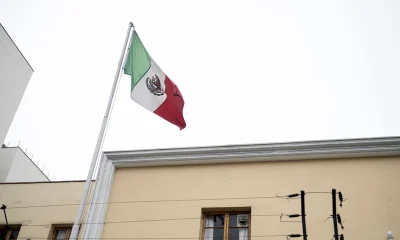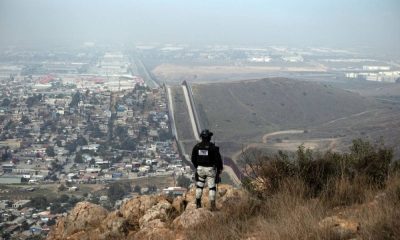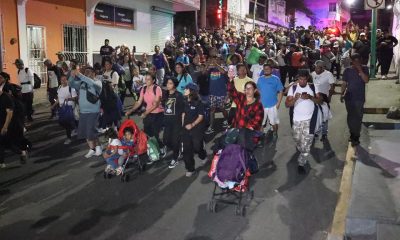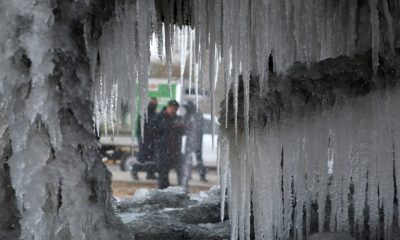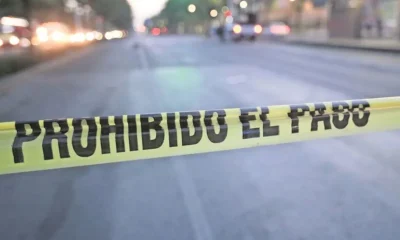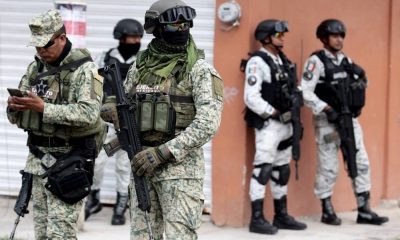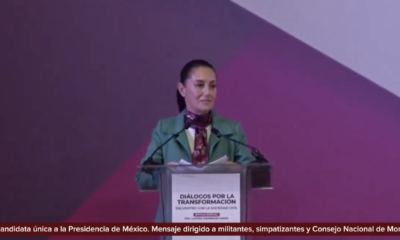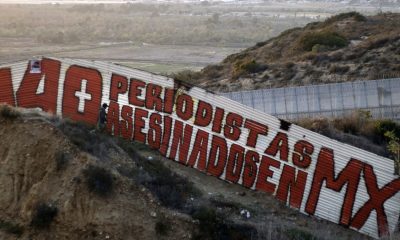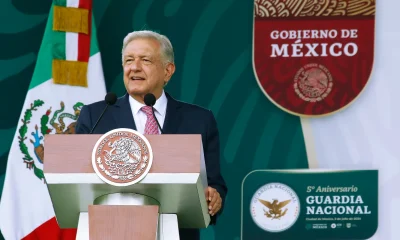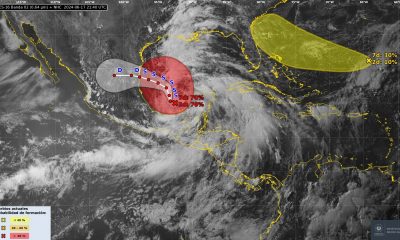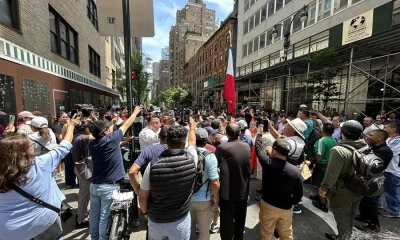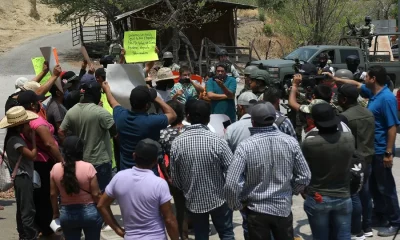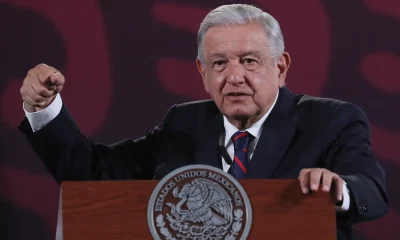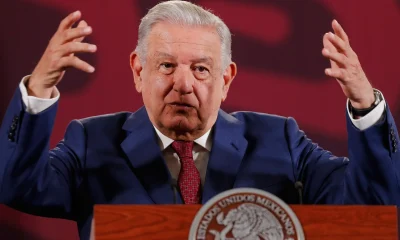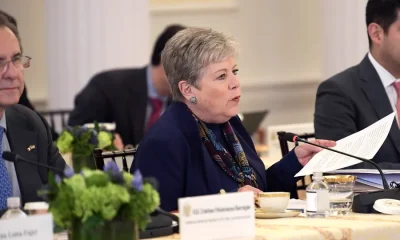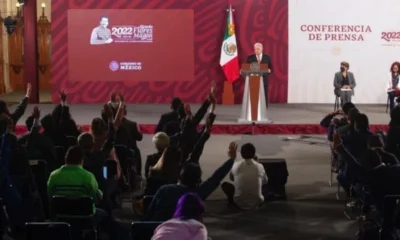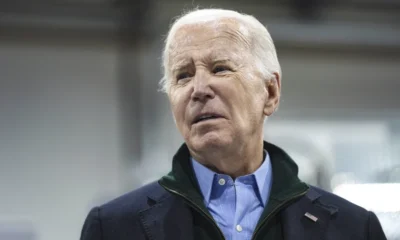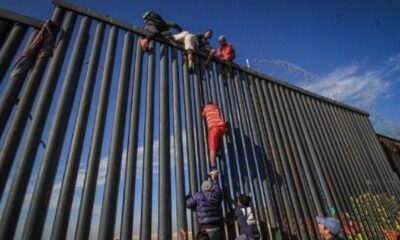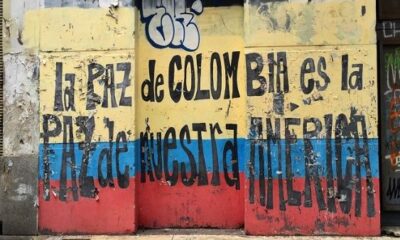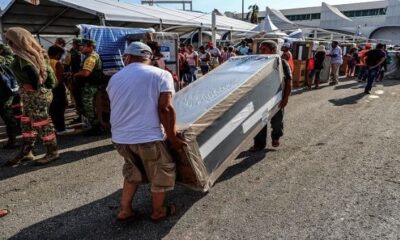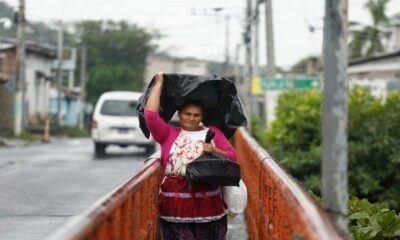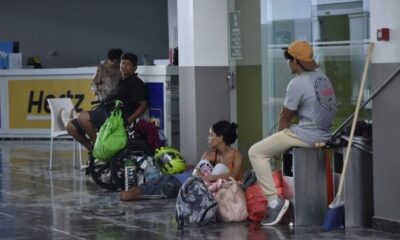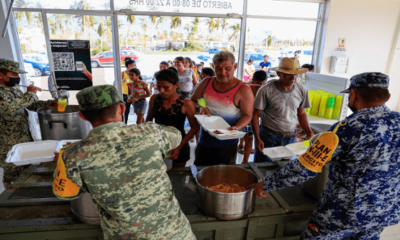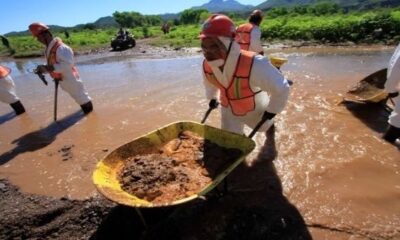International
Mexico to give temporary visas to Central Americans to work in public works
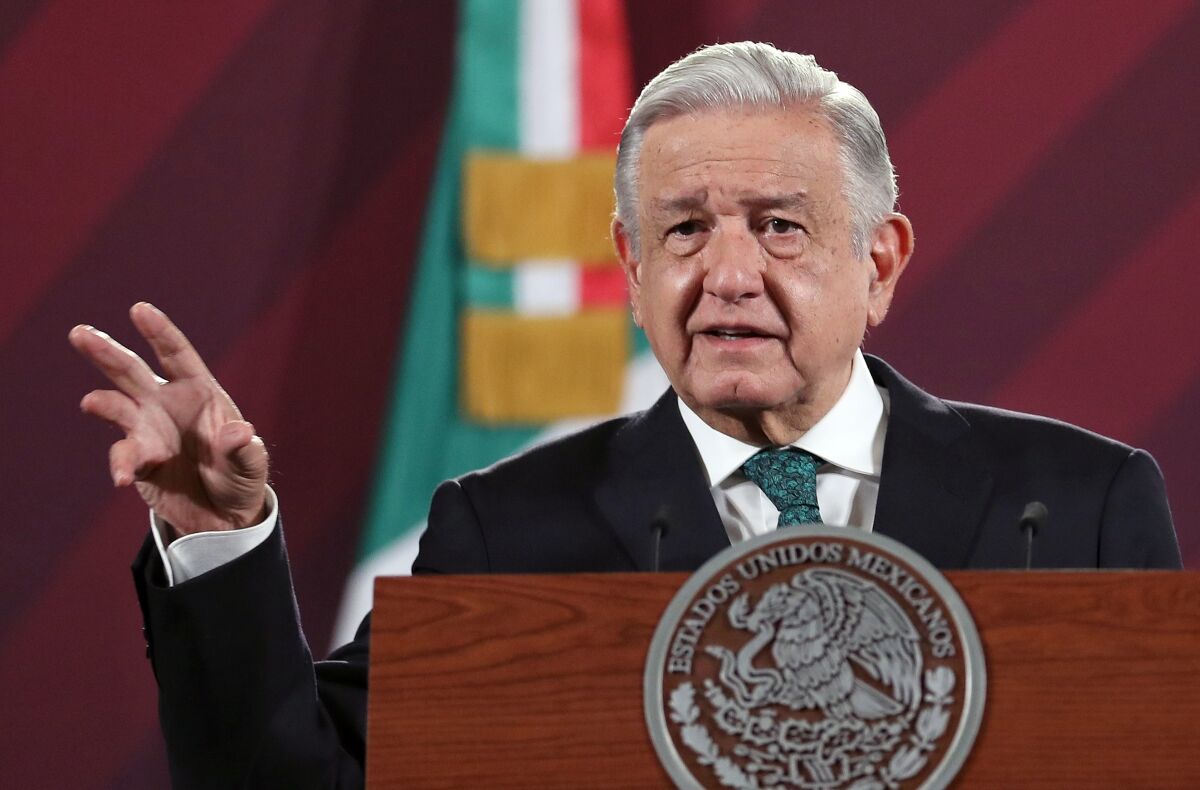
May 23 |
The President of Mexico, Andrés Manuel López Obrador, announced this Monday that his government will grant one-year temporary visas to Central Americans to work in the country’s public works, such as the Mayan Train, one of the most emblematic constructions of his administration.
“This week I am going to present a program for our Central American brothers with the purpose that they can have temporary visas to work in public works in Mexico, that they can be legally in our country with temporary work visas,” informed the president in his daily press conference.
“Wages are also increasing in our country, in the Mayan Train operators, drivers, workers, are already earning better, because there is more demand for employment, so companies are paying more. These are attractive salaries to come, work for 15 days and return,” he explained.
Last Saturday, López Obrador continued, he received a letter from his U.S. counterpart, Joe Biden, congratulating him for the work done on the immigration issue and expressing his commitment to invest more in Central America and the Caribbean.
“We are working together,” the Mexican president assured about this type of immigration policies, which he said still need to be “fine-tuned”.
“It is not right to be rejecting migrants when there is a need for labor force. If not, how will there be growth? There are places in the United States where there are no workers,” he added.
López Obrador admitted that the public works promoted during his six-year term, among which the Mayan Train and the inter-oceanic corridor of the Isthmus of Tehuantepec stand out, are also in need of labor.
“We need many ironworkers, welders, even engineers, professionals,” he stressed.
For the Mayan Train, which will run through the southern region of Mexico and is scheduled to be inaugurated next December, he added that the government is sending drivers or mechanics to Europe for training.
The public works, which López Obrador has turned into the flagship projects of his Administration, have been surrounded by controversy due to the role of the Armed Forces in their construction and management, framed in a series of strategies that have boosted the militarization of the country.
The environmental impact and the impact on the indigenous communities that the Mayan Train will have has also been criticized, effects that the Government has denied.
Regarding potential workers coming from Central American countries such as Guatemala, Honduras, El Salvador and Nicaragua, from where many migrants arrive to Mexico in search of crossing to the United States, López Obrador did not clarify the procedure they will have to follow to obtain a temporary work visa.
International
Iran Reports 201 Dead, 747 Injured After U.S. and Israeli Strikes

The Iranian Red Crescent Society reported Sunday night (local time) that at least 201 people were killed and 747 injured following attacks carried out by Israel and the United States against the Islamic Republic.
A spokesperson for the humanitarian organization said more than 220 rescue teams have been deployed across affected areas and that relief operations are continuing without interruption. The official highlighted the difficulty of treating the large number of wounded and the urgent need for additional resources in impacted provinces.
Out of Iran’s 31 provinces, 24 have reported damage, according to a statement carried by the Isna news agency. This marks the first overall casualty toll released by Iranian state-affiliated media since the launch of the offensive.
Among the dead are 85 schoolgirls from a school in the southern city of Minab, according to the country’s judiciary. “The number of martyrs at the Minab girls’ school has risen to 85,” the local prosecutor’s office said, as quoted by the judiciary’s website, Mizan Online.
Iranian President Masud Pezeshkian described the attack as a “savagery” that “constitutes a new black page in the record of countless crimes committed by the aggressors.”
Meanwhile, the international community continues to monitor the situation closely amid concerns about possible further reprisals and the broader impact on Middle East stability, energy markets, and global security.
AFP noted that it was unable to independently verify the casualty figures or the circumstances surrounding the events.
International
Pope Leo XIV Urges End to ‘Spiral of Violence’ in Middle East

Pope Leo XIV on Sunday called for an end to the “spiral of violence” in the Middle East, following military strikes by the United States and Israel against Iran and subsequent retaliatory bombardments in the region.
“Faced with the possibility of a tragedy of enormous proportions, I urge the parties involved to assume their moral responsibility and stop the spiral of violence before it becomes an irreparable abyss,” the pontiff told the crowd gathered in St. Peter’s Square at the Vatican.
Speaking during the Angelus prayer, the U.S.-born pope said stability and peace cannot be achieved through threats or weapons. “Stability and peace are not built with reciprocal threats or with arms that sow destruction, suffering and death, but only through reasonable, sincere and responsible dialogue,” he declared.
The leader of the world’s 1.4 billion Catholics also called for diplomacy to “regain its role” amid escalating tensions.
In addition, the pope urged Afghanistan and Pakistan to urgently resume dialogue after several days of clashes between the two countries.
International
Security Council to Hold Emergency Meeting on Middle East Crisis

UN Secretary-General António Guterres on Saturday condemned the “military escalation in the Middle East” following attacks by the United States and Israel against Iran and Tehran’s retaliatory strikes, just hours before an urgent meeting of the UN Security Council.
“I call for the immediate cessation of hostilities and de-escalation,” Guterres said in a statement.
The Security Council is scheduled to meet on Saturday at 21:00 GMT (4:00 p.m. in New York) to address “the situation in the Middle East,” the United Nations announced.
The meeting, during which Guterres will deliver remarks, was convened at the request of France, Bahrain, Colombia, Russia and China, according to a diplomatic source.
-

 International5 days ago
International5 days agoFamily of “El Mencho” Seeks Return of Body After Deadly Military Operation
-

 International5 days ago
International5 days agoLarry Summers Steps Down from Harvard Role Amid Epstein Controversy
-

 International5 days ago
International5 days agoIran’s President Optimistic Ahead of Geneva Nuclear Talks with U.S.
-

 International5 days ago
International5 days agoBill Gates Admits “Serious Mistake” Over Epstein Ties
-

 International5 days ago
International5 days agoStephen Hawking Photo Appears in Newly Released Epstein Documents
-

 International4 days ago
International4 days agoCocaine Production Surges 34% in 2023 as Market Expands into Africa and Asia
-

 International3 days ago
International3 days agoTrump Floats “Friendly Takeover” of Cuba Amid Rising Tensions
-

 International24 hours ago
International24 hours agoIran Reports 201 Dead, 747 Injured After U.S. and Israeli Strikes
-

 International2 days ago
International2 days agoSecurity Council to Hold Emergency Meeting on Middle East Crisis
-

 International24 hours ago
International24 hours agoPope Leo XIV Urges End to ‘Spiral of Violence’ in Middle East
-

 International4 days ago
International4 days agoFederal Judge Blocks Trump Policy Allowing Deportations to Third Countries
-

 International3 days ago
International3 days agoArgentina’s Senate Reviews Milei-Backed Labor Overhaul
-

 Sin categoría2 days ago
Sin categoría2 days agoTrump: ‘We Think It’s True’ Amid Claims Iran’s Supreme Leader Was Killed
-

 International4 days ago
International4 days agoClinton Accuses Republican Committee of Using Epstein Case to Shield Trump



























